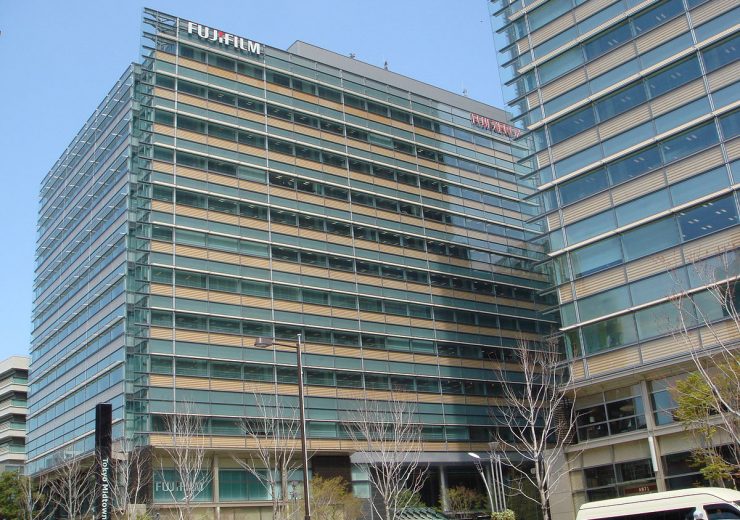The investment will expand FDB’s capacity for recombinant vaccines and advanced gene therapies in the US and the UK

Fujifilm global headquarters in Midtown West, Tokyo. (Credit: Mapio/Wikipedia.)
Fujifilm has unveiled its plans to invest JPY90bn ($850m) in its subsidiary Fujifilm Diosynth Biotechnologies (FDB) to expand its capacity for biologics.
FDB is a Contract Development and Manufacturing Organisation (CDMO) that develops and manufactures recombinant proteins, vaccines, monoclonal antibodies, among other large molecules and viral products.
The current announcement follows Fujifilm’s plans to invest $2bn to build a new large-scale cell culture production site in the US, announced in January this year.
It brings the company’s total investments in FDB since 2011 to $5.5bn.
Fujifilm president Teiichi Goto said: “Fujifilm will never stop in its relentless pursuit to develop new technologies and provide the necessary manufacturing capacity to meet the needs of our customers and accelerate the growth of its Bio CDMO business.
“We will contribute to promoting a healthy society and developing the healthcare industry by providing a stable supply of high-quality biopharmaceuticals with our advanced technologies and facilities.”
The new investment will expand FDB’s manufacturing capacity by doubling its cell culture production for recombinant vaccines in the US.
Also, the CDMO is enabled to expand its gene therapy production ten-fold, triple its cell culture capacity and double its microbial fermentation output in the UK.
The UK cell culture operations expansion will also include cGMP capacity for continuous manufacturing, along with the process and analytical development capacity.
The expansions are planned to commence operations by late 2023.
Fujifilm is gradually expanding its CDMO business by strengthening FDB’s contract development and manufacturing capabilities for biopharmaceuticals.
In June last year, the company has announced a $928m investment in the FDB’s Denmark site, acquired from Biogen in 2019, to expand its drug substance manufacturing capacity.
The expansion was aimed at adding the fill/finish capabilities to the site, along with enhancing its assembly, labelling and packaging services.
